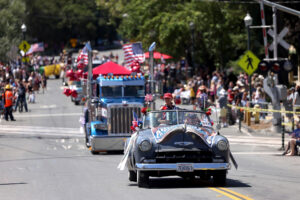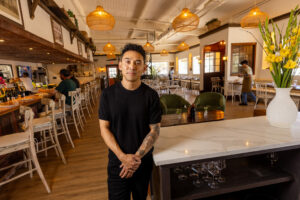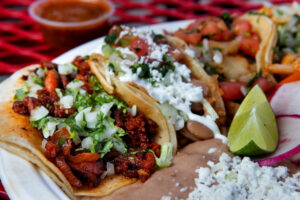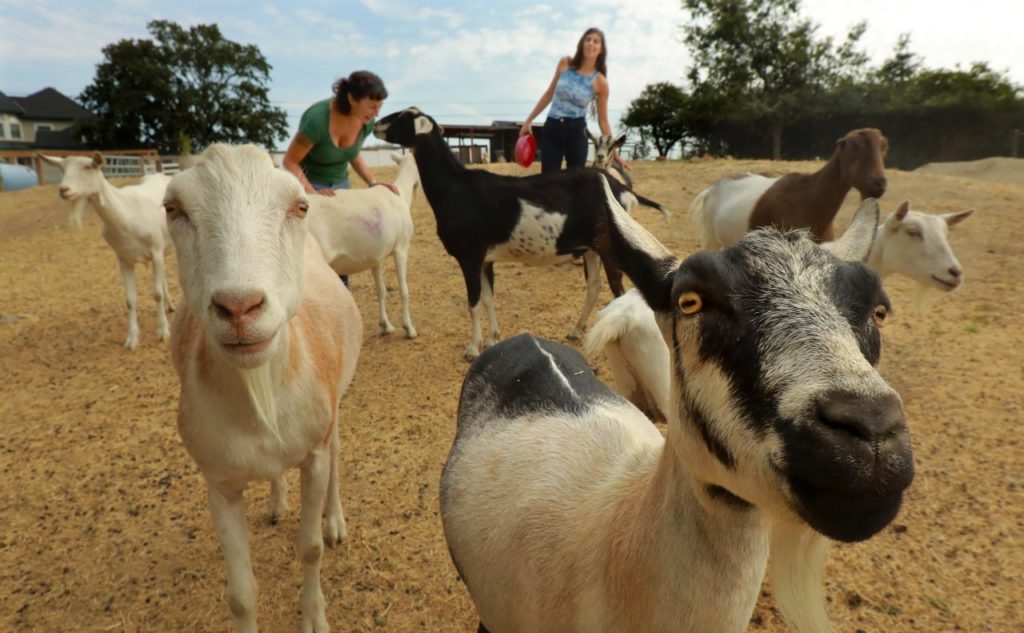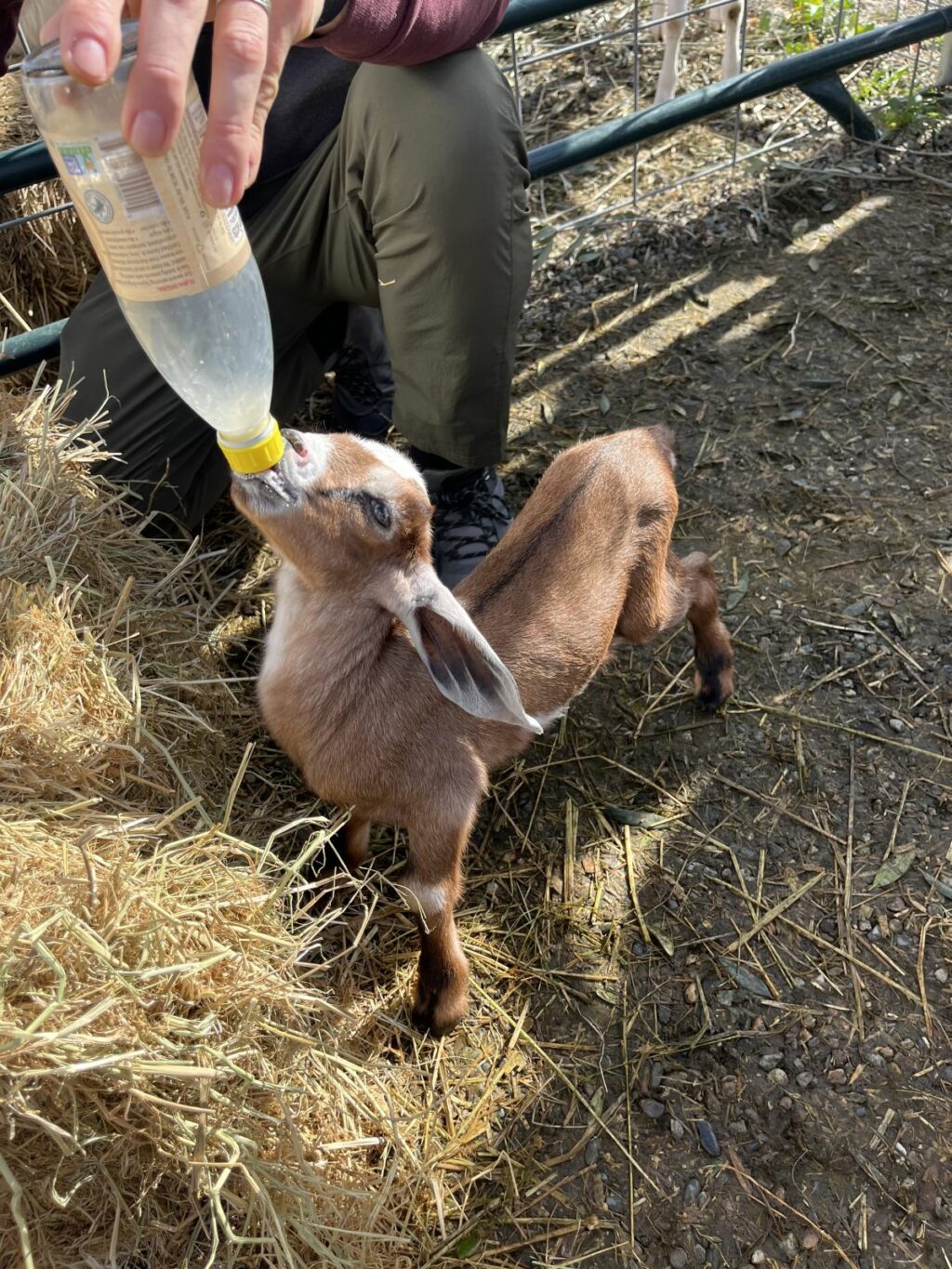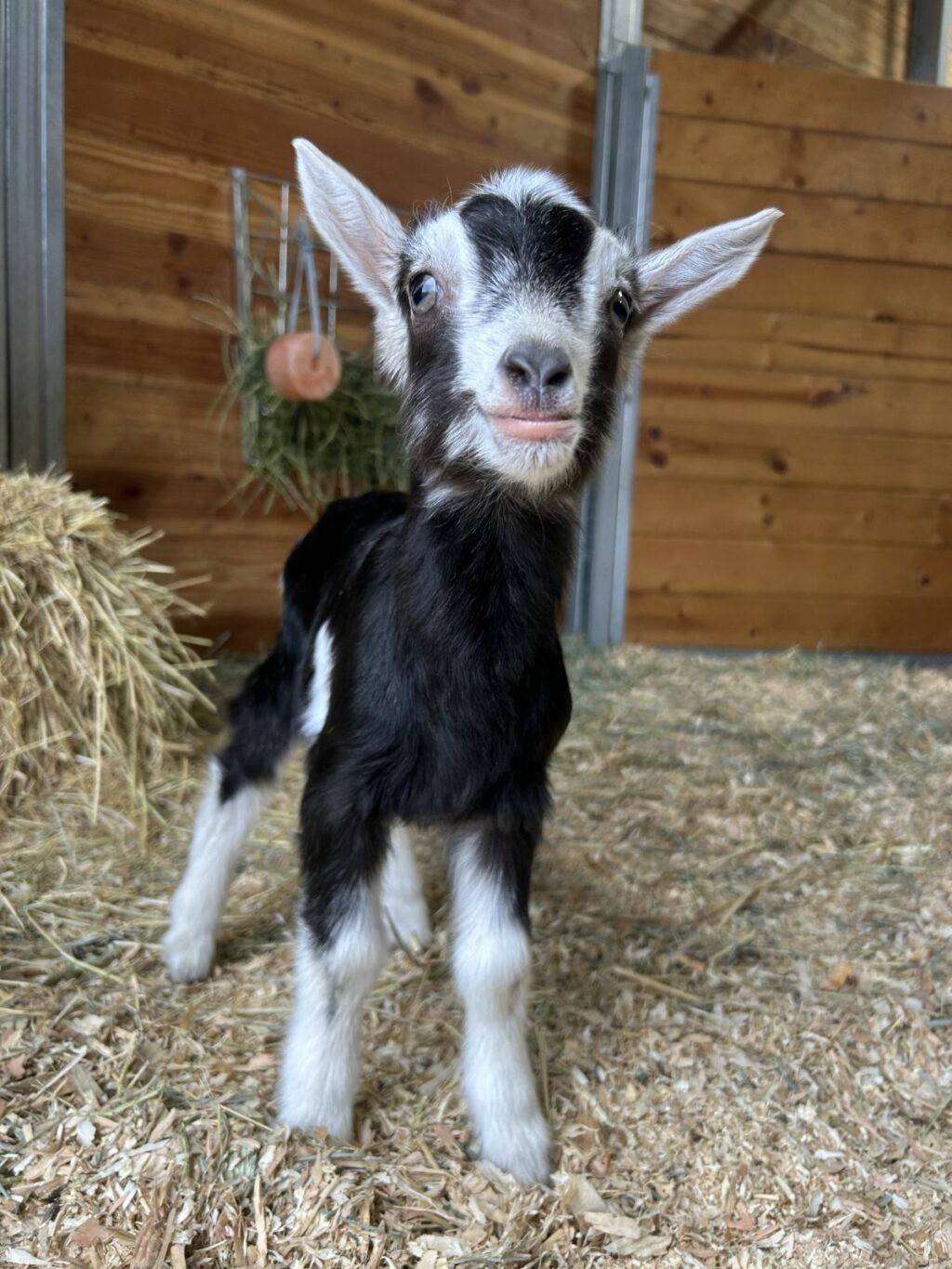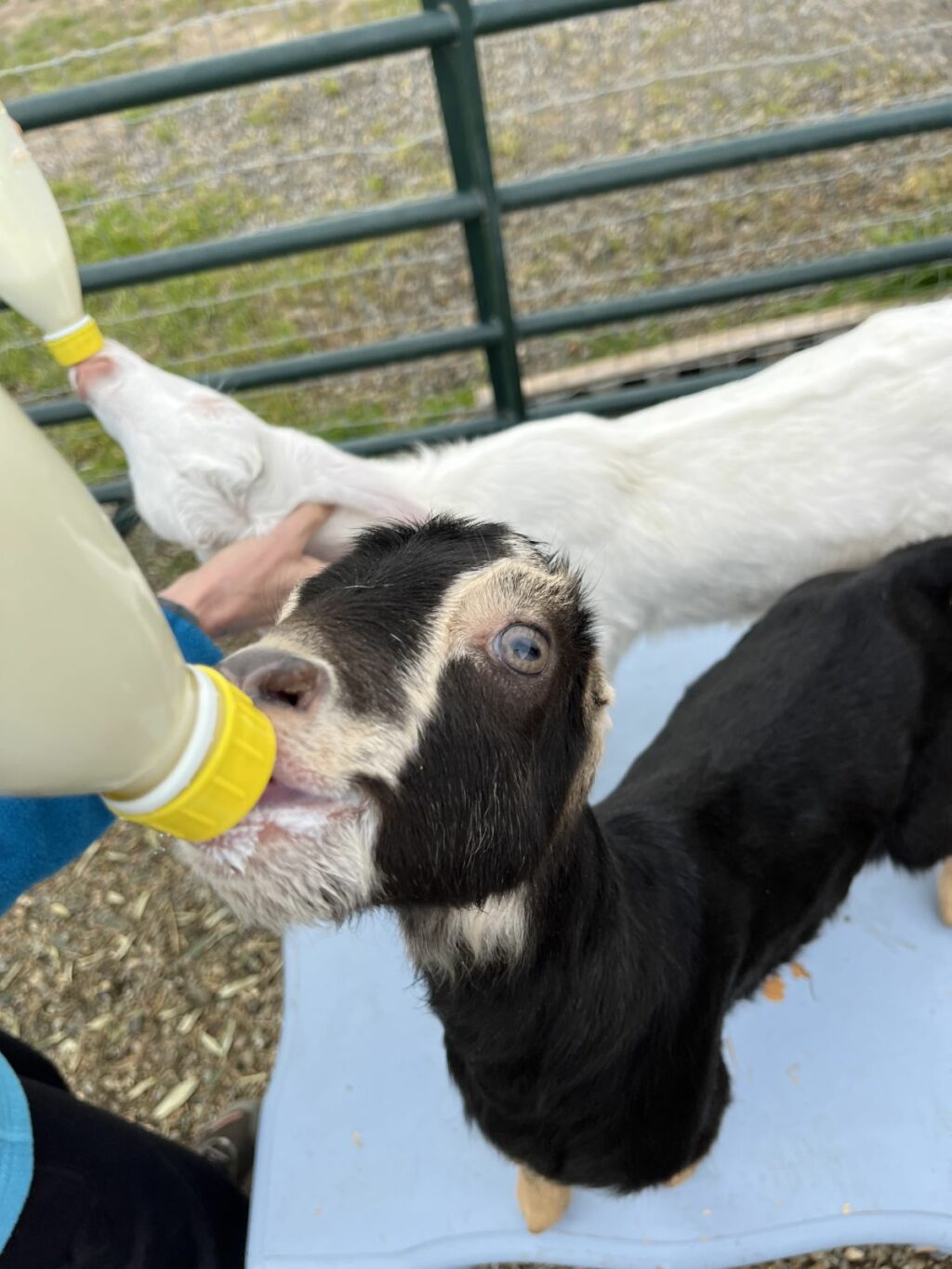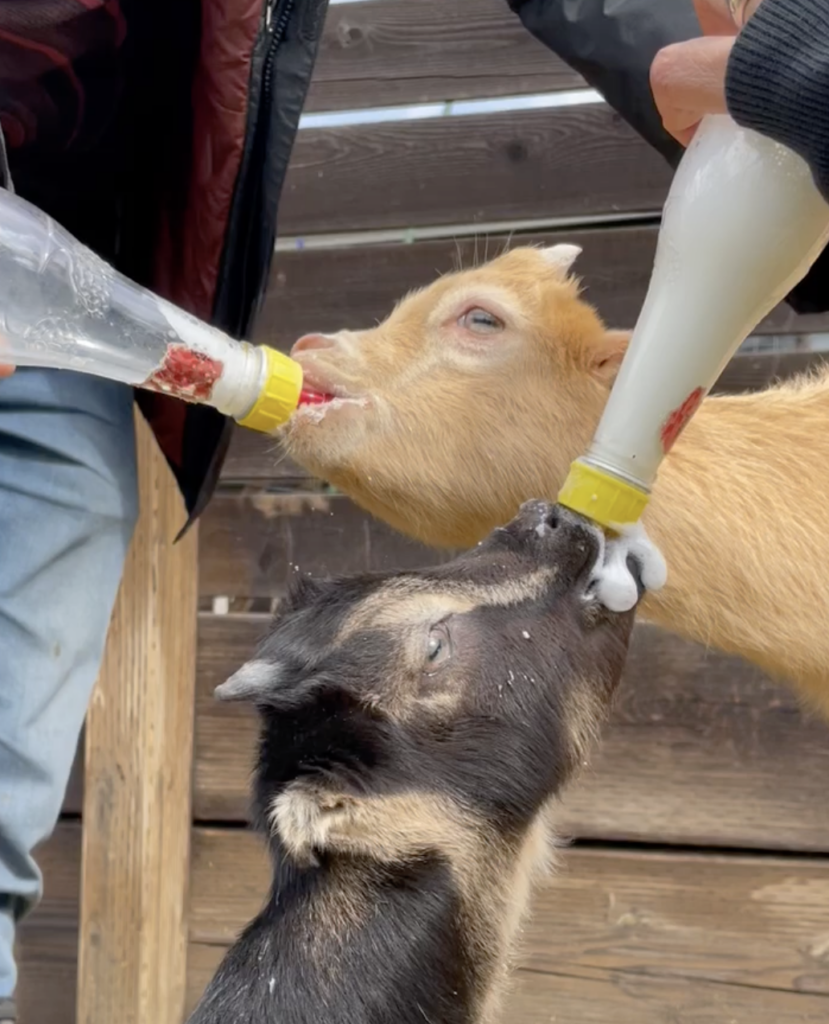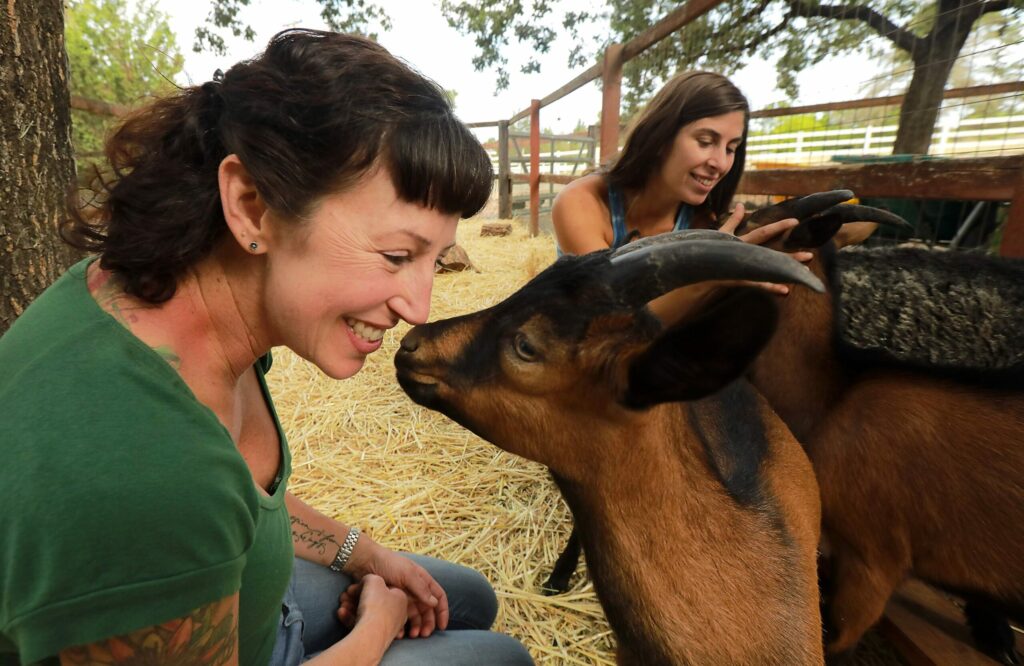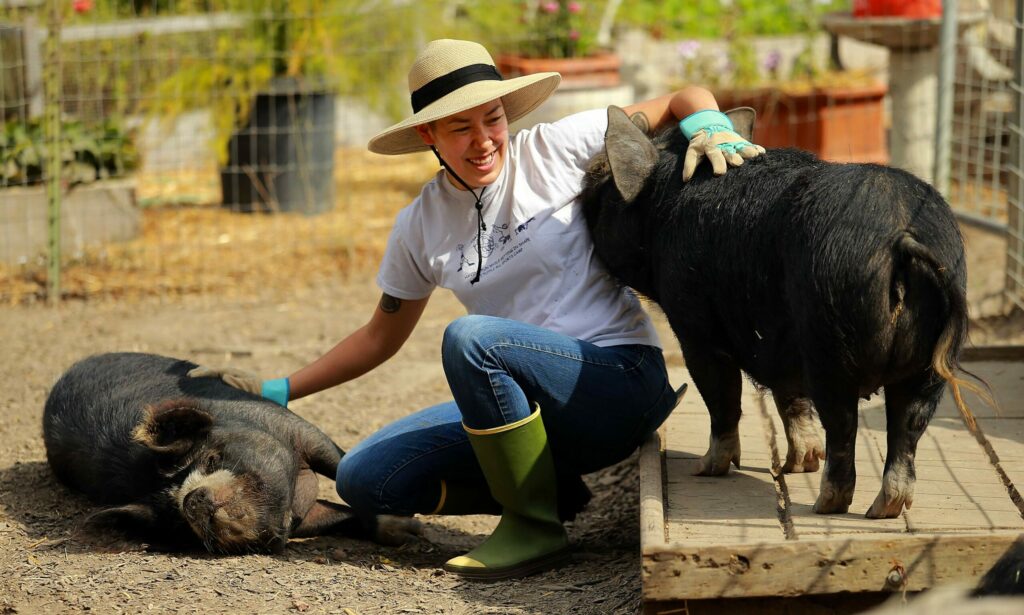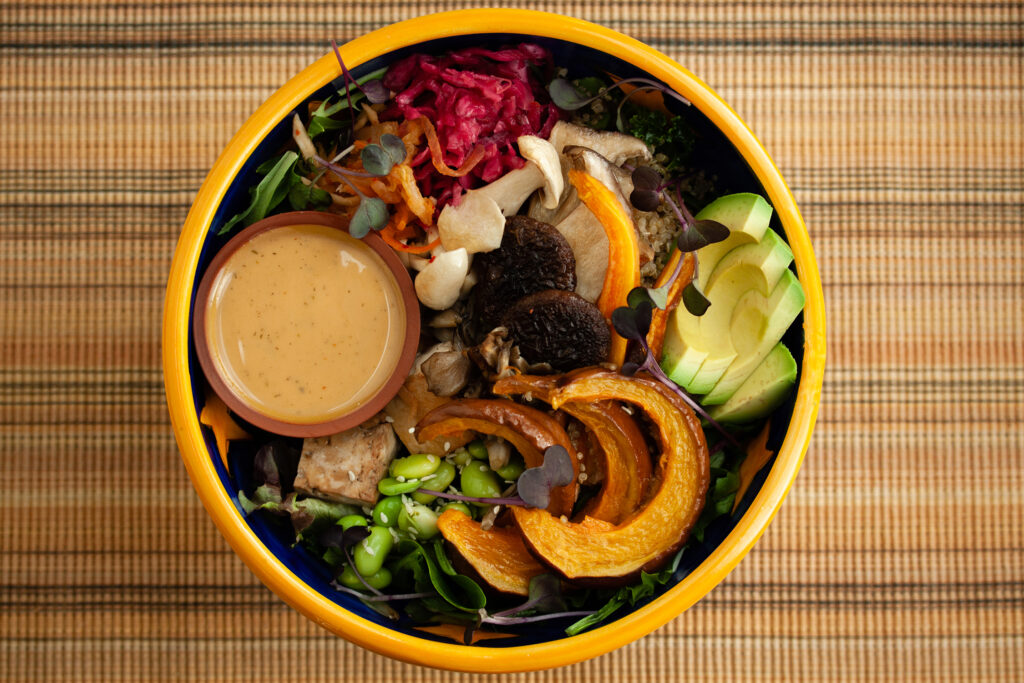Unless you’re a celebrity, there aren’t many occasions that can make you feel more popular than stepping into a barn stall that’s home to a handful of cuddly and hungry baby goats. They’re like puppies, but if possible, even more smile-inducing.
“It’s heart-opening. The whole experience is heart-opening,” said Goatlandia founder and executive director Deborah Blum.
Every year, Goatlandia Farm Animal Sanctuary in Sebastopol rescues mostly male baby goats, almost exclusively from the dairy industry. Unable to produce milk, the newborn males have no value. Babies must be bottle-fed and are cared for until they can be adopted into forever homes — many become part of the herd at City Grazing, a goat-powered landscaping nonprofit based in San Francisco.
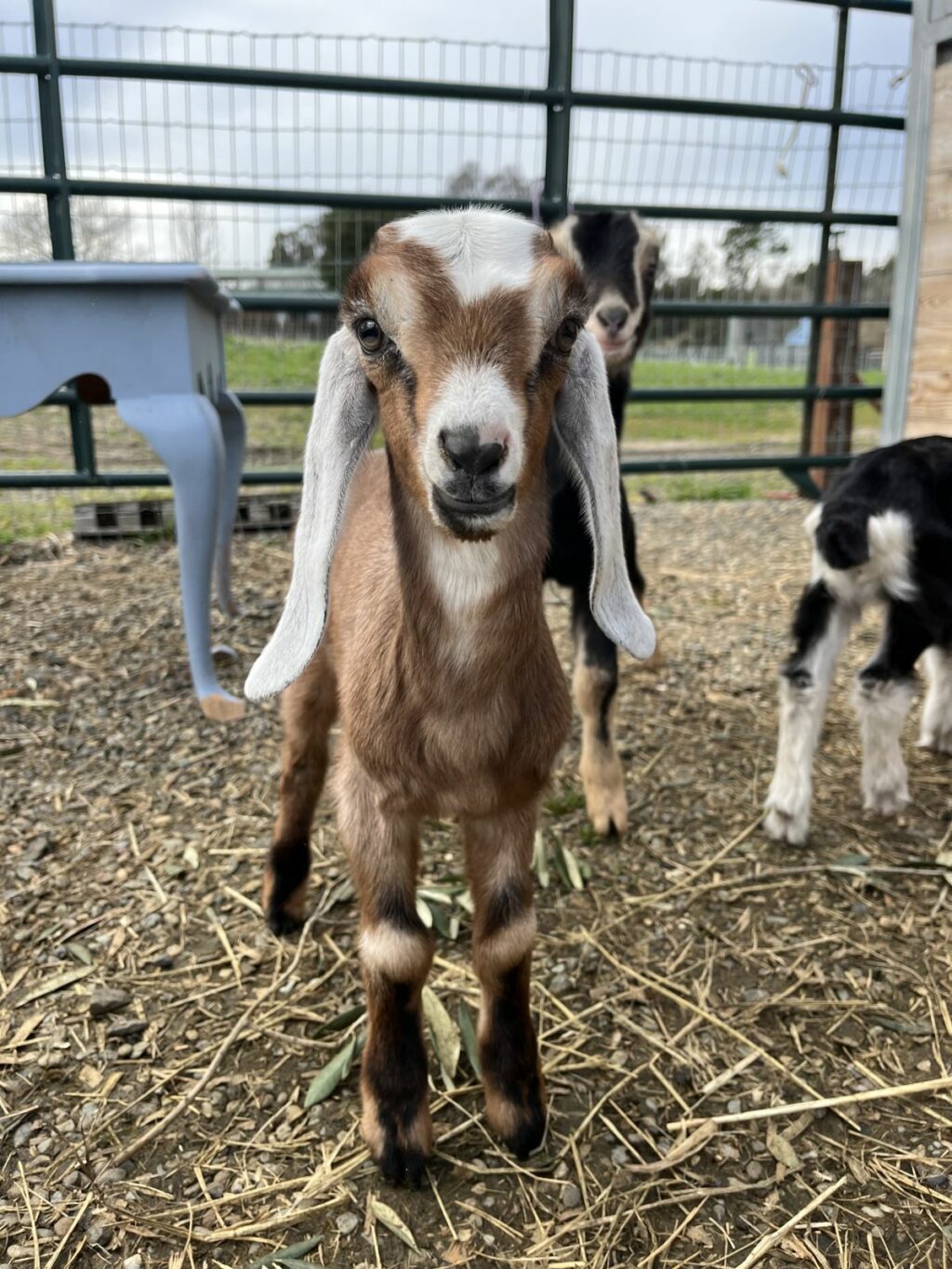
But raising a baby goat isn’t cheap. From milk and hay to veterinary and staff care, the nonprofit estimated expenses for the first three months of a baby goat’s life run, on average, a bit more than $5,000. Unable to nurse from their mother, when goats are very young, they may need to be fed up to eight times a day.
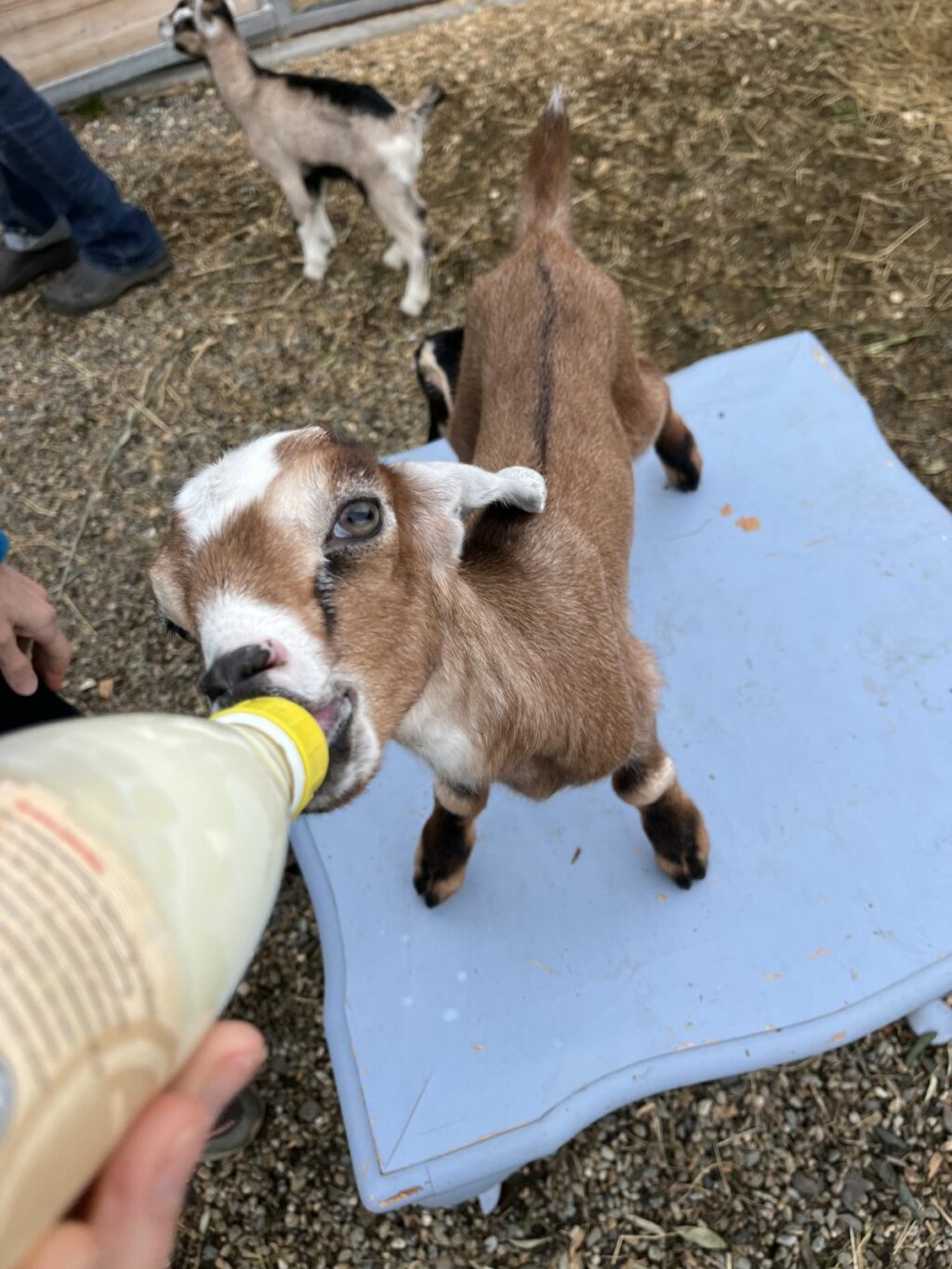
That’s where the Bottle Babies Breakfast Club comes in. For a $250 donation, up to four people can get quality one-on-one time with the charismatic bundles of joy. The bottle feeding goes by oh, so fast, but once every goat’s belly is full, you can expect nonstop kid cuddles while learning about goat care and rescue.
Goatlandia strives to educate visitors about plant-based eating and to increase compassion for all animals. Blum adopted a vegan lifestyle many years ago after watching a detailed video regarding animal agriculture. In addition to rescued goats, the 36-acre sanctuary is home to horses, cows, geese, peacocks, ducks and, most recently, cats. The rescue group found homes for more than a dozen cats it took in after the devastating wildfires in Los Angeles, but a majority of the sanctuary’s residents are goats.
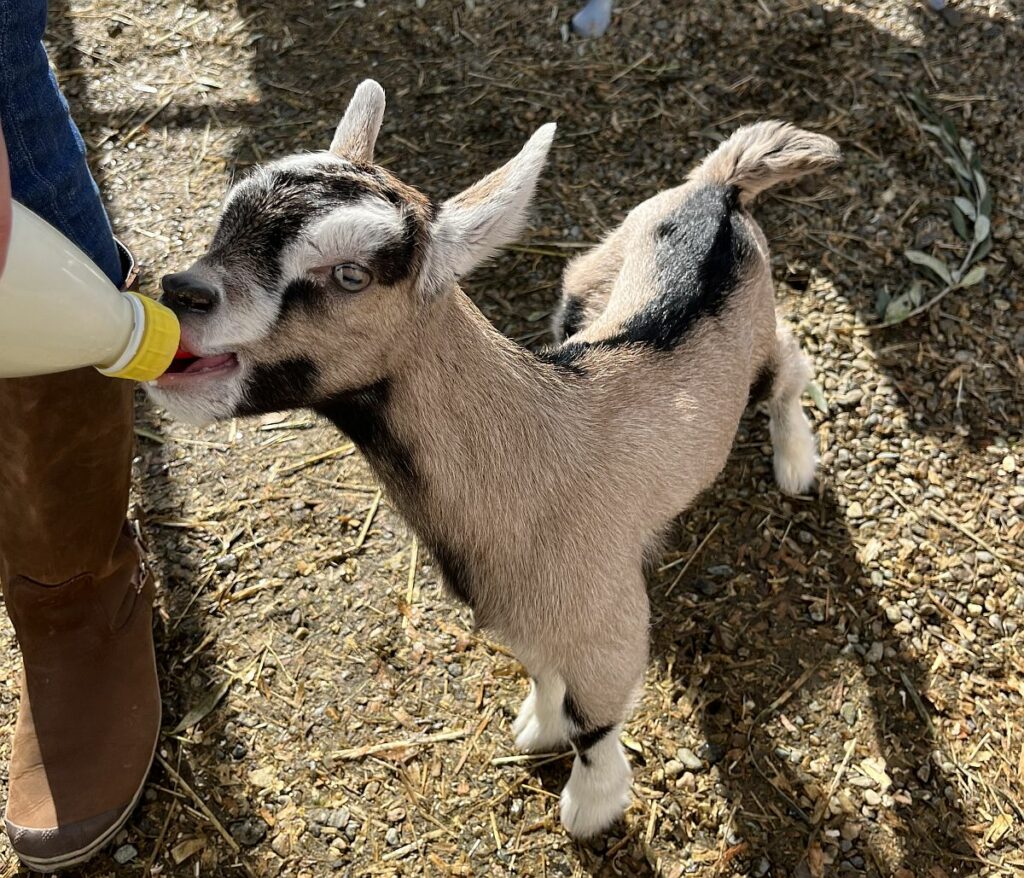
“We save lives. We raise [goats]. We do the hard part of bottle feeding and castration. We send them out, they get to be grazers. Grazing companies don’t have to breed. It’s just a win, win, win,” said Blum.
While spring is typically a busy time of year, the Baby Bottle Breakfast Club runs whenever the nonprofit organization rescues baby goats. Dates through April are currently available for booking. Visit the Goatlandia website and @goatlandia_sanctuary on Instagram for the latest updates.
1567 Cunningham Road, Sebastopol, 707-541-6216, goatlandia.org






